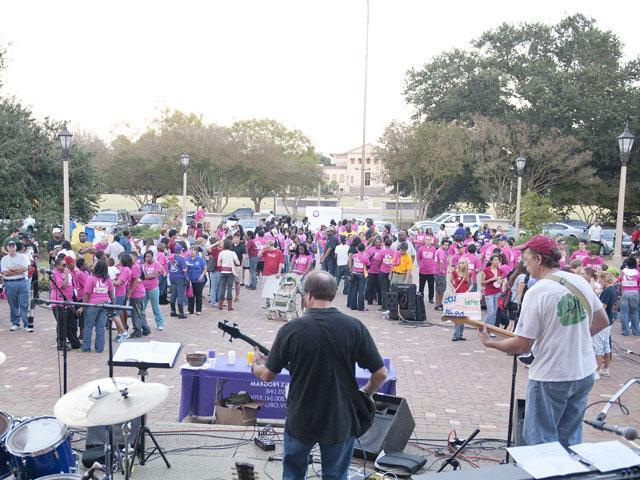LAUREN LANGLOIS, Reveille Radio News Reporter:
Representative Nita Hutter of Chalmette says House Bill 46, now called Act 321, was in the making for a long time, but what really sparked her to pen the bill was the tragic story of Lindsay Ann Burke who was killed by an abusive boyfriend in 2005.
NITA HUTTER (Representative for Chalmette): It was time….for Louisiana to be involved in the public education of domestic violence.
LANGLOIS: Unlike the state’s past domestic violence legislation, which focused on criminalization and injunctive relief, Act 321 will focus on stopping domestic violence before it happens through education, which Hutter says is the key.
HUTTER: It’s all about the education. People have to understand that if somebody loves you, they don’t hit you.
LANGLOIS: The act leaves room for schools to decide the specific curriculum, but does require schools to teach grades 7 through 12 the definition of dating violence, dating violence signs and the characteristics of a healthy relationship. The law also doesn’t ask for government money. Hutter says the law’s lack of government funding was a plus, but is unsure if it was a deciding factor for lawmakers.
HUTTER: They’re some things that you come across that you know it’s important that…you just have to do it.
LANGLOIS: Louisiana Appleseed Legal Fellow Jeannine Sullivan says the number of women dealing with abuse is staggering.
JEANNINE SULLIVAN (Louisiana Appleseed Legal Fellow): Some statistics say 1 in 4, some say 1 in 5 female…teenagers are affected by physical and or sexual violence and that’s…a huge number.
LANGLOIS: Louisiana Appleseed is part of a national non-profit group working to solve social problems by attacking their roots. It lobbied for the bill as well as set up testimonies for the bill’s presentation. Right now, Louisiana Appleseed is working with the Coalition Against Domestic Violence, The Foundation Against Sexual Assault and the Department of Education to prepare teachers for the new program. Sullivan says they will have two training conferences in December, but since there is no money, non-profits will pay for the conferences as well as the teaching materials. Whether the state will fund the program in the future is a mystery, but it would certainly help on a personal and state level she says.
SULLIVAN: It would be…fabulous because this really does have an economic effect on our state…that’s a totally different way of looking at it.
LANGLOIS: Hutter says passing the bill was not hard since most know how rampant domestic violence is. Lawmakers not only heard statistics, but also heard a personal testimony from Nicholls State University Sophomore Alicia. Alicia says during her testimony she talked about how the bill could have helped her when she was 16 and in an abusive relationship. Alicia has worked on domestic violence prevention since her senior year in high school. She says her experience with helping the bill become a law was amazing.
ALICIA (Witness for Act 321): I’m probably one of the luckiest people…I was kind of dumbfounded that I was going to be a part of something that I hoped would be a change for the best.
LANGLOIS: Alicia helps plan domestic violence awareness events for the NSU Women’s Resource and Services Office. Like Hutter she stresses the need for knowledge when it comes to domestic violence and its signs.
ALICIA: Just because you don’t see the bruises, just because you don’t see somebody hit somebody physically doesn’t mean the abuse isn’t there.
LANGLOIS: Those who are dealing with or know someone who is dealing with domestic violence, can call The Battered Women’s Program at (225) 389-3001. I’m Lauren Langlois with Reveille Radio News.
For more information about the LSU Women’s Center, click here.
Legislation aims to decrease domestic violence through education
October 25, 2010
More than 100 people showed up to support raising awareness about violence against women at this year’s Take Back the Night.






